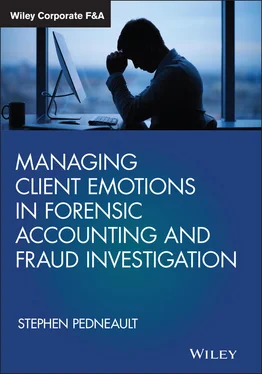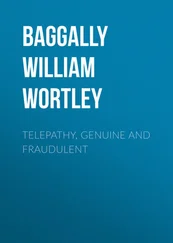Seeing that we were at the school and had not received notice of the finance manager's absence, we assumed that the finance manager must have realized her illegal actions were about to be uncovered. She would avoid meeting with us and having to explain her actions, buying herself perhaps a few more days. (It turned out we were right: The finance manager's unauthorized diversion of funds was uncovered, and she was ultimately held accountable for her thefts.) However, the goal in our initial meeting was not to reveal any of this to the administrative employee. We needed her to help us, so we needed to minimize – in her mind – our involvement in this matter.
While we were at the school, we had the administrative employee identify the location of the financial records, including the bank statements. The administrative employee showed us to the file cabinets and told us that the bank statements were all maintained offsite. We asked her how many bank accounts there were, and she said there were many. We asked her why the bank statements were kept offsite. She couldn't explain to us why they were not maintained in the file cabinets with the school's other financial records. She said that most of the accounts were maintained by the finance manager, but that there were other smaller accounts maintained by other individuals involved in the school. We created a list of these accounts and identified the individual associated with each account's records.
We collected two years’ worth of financial records from the file cabinets and secured them in our cars to transport them to our offices for safekeeping. We thanked the administrative employee for her help and told her how much we appreciated her helping us find the financial records.
We then asked the administrative employee to contact anyone who maintained any of the school's bank account information or any other type of school financial records and instruct them to bring all those records to the school the next day – 24 hours from that point. The administrative employee could tell each person that auditors were looking for the school's financial records and needed to have the statements and records back at the school to continue their audit. We told her we would return tomorrow to retrieve the bank records. Once again, we told her that we really appreciated her help and we looked forward to meeting with her again tomorrow. At that point, she seemed much more relaxed than when we'd first met her.
The next day, when we returned to the school, the administrative employee told us that the finance manager had not come to work again, but that she had dropped off a box of bank statements in her office. The finance manager must have come to the office after school hours and left the box on her desk. The administrative employee had gone through the box that morning, sorted the statements by bank account, and organized them for us. She also told us that others had brought their account statements to her that morning, and she had those records organized as well.
We took out the list of accounts we had created with her the day before and asked her if statements for all of the accounts she'd identified had been received. She said that they all had, except for one. When we asked her what account it was, she said it was a sports account, which the athletic coach and his wife managed from their house. We asked her if she had requested that the coach bring all of the statements to her at the school this morning. She said she had, but that she hadn't yet received anything. We then asked her to tell us about the sports program and the coach.
She said that the coach and his family had been running the sports program at the school for many, many years. She said that they handled the account on their own, receiving their statements directly at their house and taking care of their own deposits and payments. She said that her office really had nothing to do with the sports account, and it had been that way as long as she had been at the school – some 10 or more years – and that she didn't think there was a lot of activity involved with the sports account.
She said that families paid for their children to participate in the various sports teams and programs and that the costs associated with those programs were paid from the sports fees collected. We asked her what the coach and his family were like, where they lived, and what she knew about them. She said they lived right around the corner, in a house not far from the school, and as far as she knew, this was the coach's only job. She said the family had two children who attended the school (tuition‐free, since they were school employees). She said she believed the coach's wife had a job, but did not know what she did or where she worked. She thought the coach had obtained a credit card in the school's name to use with the sports program, but she had never seen any of the credit card statements.
She seemed to be getting nervous again, and she asked us if the coach was in trouble. We told her it wasn't her fault if someone did not bring in their records and that we were only seeking the bank statements and financial records for the school so we could review them. However, we now also needed to know why the coach had not brought the sports account records to the school as requested.
We asked her to call the coach and tell him that the auditors were at the school and wanted him to bring the bank statements and financial records to the school that morning. We left her to make the call and went into a conference room to review the records that she had organized for us.
About 45 minutes later, the administrative employee came into the conference room and said that the coach was in the lobby with a box of records. We went to meet the coach and introduced ourselves. He looked very nervous. We then asked the coach to join us in the conference room. We told him we were conducting a review of the school's finances and as such we needed all of the school's bank statements. He still looked nervous.
Rather than diving right into things, I decided to take a different approach and see if his nervousness continued or diminished as we spoke. I asked him to tell us about the sports programs at the school. He described the various sports programs and teams and his family's involvement. He said that he and his wife had attended the school when they were younger, and now their children attended. During the conversation, his nervousness did not diminish. I asked him how the finances worked for the sports programs, and he told us about the fees and the nature of the program's expenses, like uniforms, field rental costs, and referee fees. Everything he said appeared straightforward and consistent, but he remained anxious.
We asked him if he'd brought all of the bank statements, paid invoices, and deposit records for the program, and he said that he had. When we asked him why he maintained the records at his house rather than the school, he said it had always been that way, and it was easier to keep everything together at his house. He said no one had ever asked him for the records in the past. We asked him why he hadn't brought them this morning as requested, and he said that he wanted to be able to explain them to the auditors when they reviewed them. His agitation grew.
We thanked him for bringing in the records and told him that we would go through them, along with all of the other accounts, and would circle back with him if we had any questions. As we finished our conversation, we asked him one final question: When we went through the financial records for the sports program, would we find anything that could be a potential issue regarding the finances and how they were handled?
He said that that was what he wanted to talk to the auditors about. He was now the most nervous he had been since we began talking. We asked him if he would like to tell us why he was so nervous. He said that when we went through the bank account, we would see expenses unrelated to the sports programs. We asked him to describe these types of expenses, and he said he wasn't sure if he should be talking with us. We told him that we understood and that we would get to the truth one way or the other once we reviewed the records. We also already knew about the credit card. We told him we weren't meeting with him to judge him, but rather we just wanted to get his side of the story about the school's sports program funds.
Читать дальше












